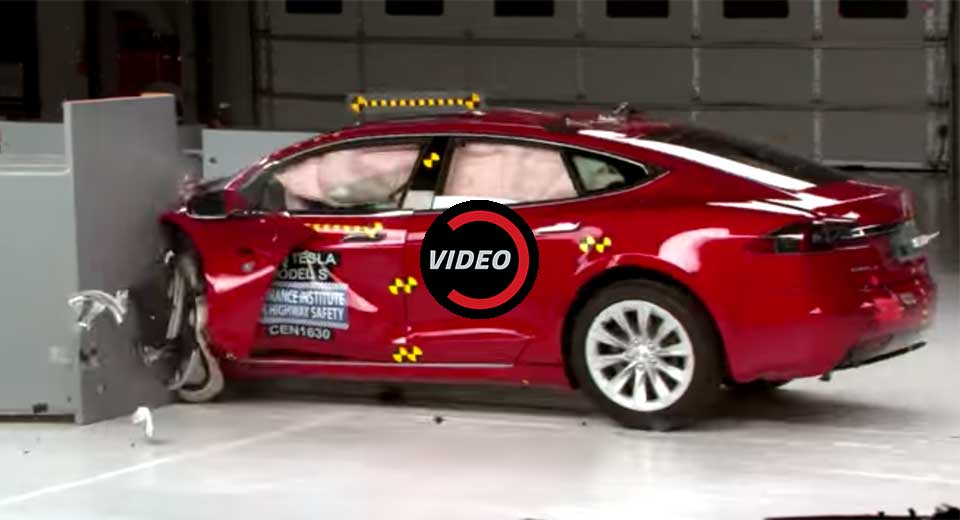There’s a great deal to be said in favor of the Tesla Model S: range, acceleration, the latest tech, and its own unique kind of bragging rights. But what about safety?
The Model S made headlines back in 2011 when it earned five stars on both the NHTSA and Euro NCAP standards. In 2013 it claimed the best results in crash testing since the US authorities introduced the current standards in 2011, and might have earned higher than five stars if such a rating were possible. But the Insurance Institute for Highway Safety begs to differ.
In evaluating four EVs, the independent vehicle-safety testing body found that the Tesla wasn’t up to its rigorous standards. The Model S scored Good results (the top of four grades) in the moderate overlap front, side, roof strength, and head restraint/seat tests, but only Acceptable in the small overlap front crash test.
The problem apparently came down to the seatbelt, which failed to keep the driver-dummy’s head from hitting the steering wheel in the newest crash test. Fitting a better restraining system could yet fix the problem to the Institute’s satisfaction. But as it stands, without acing all five crash tests, the Tesla fell short once again of earning a Top Safety Pick rating – an award which it has still yet to win.
Poor headlights and Marginal ease of use for its child-seat anchor latches didn’t help, either. The Institute also points out that, while all versions use the same frame, the added weight of the P100D means its roof doesn’t hold up as well to simulated roll-over structural integrity testing. And despite its advanced Autopilot system, the Model S doesn’t offer the front-crash prevention system required for eligibility for a Top Safety Pick + award.
The Tesla isn’t the only EV to fall short of IIHS standards. The organization also put the BMW i3 through its battery of tests (so to speak) for the first time, in which it achieved Good ratings in all but the head restraint/seat, headlight, and child-seat anchor categories (where it earned only Acceptable ratings) – preventing it from earning the Top Safety Pick ribbon as well.
Fortunately those looking for a safe vehicle with electric propulsion – and who hold the IIHS standards in high regard – will find that both the Chevy Volt and the Toyota Prius Prime scored the granddaddy of them all, the Top Safety Pick +. Both of the plug-in hybrids aced all five crashworthiness criteria and have front crash prevention systems rated as Superior, with the Prius only dropping to the second-best Acceptable rating for its headlights.



